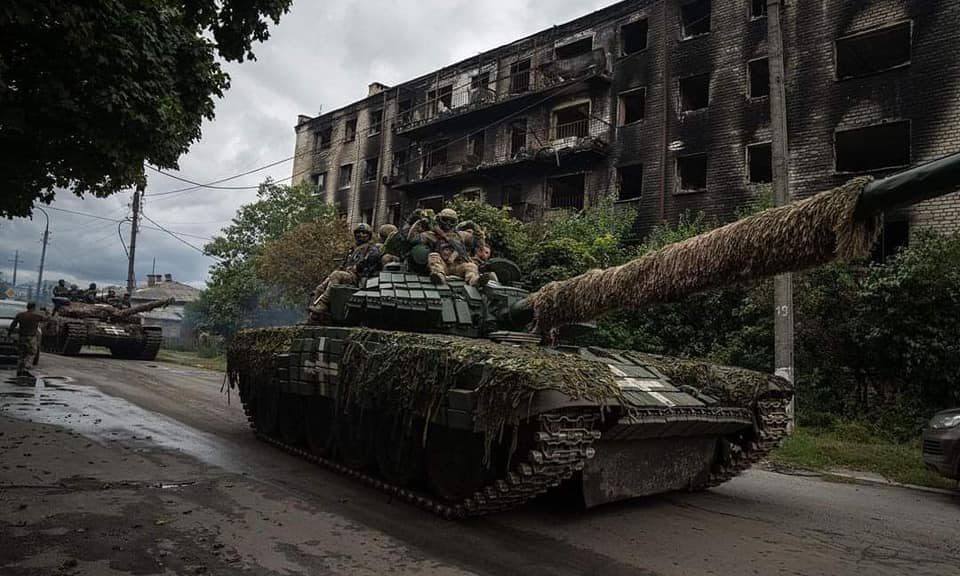All posts by JKallberg45
THE WEAPONIZED MIND
As an industrialist nation transitioning to an information society and digital conflict, we tend to see technology and the information that feeds the technology as weapons – and ignore the few humans with a large-scale operational impact. Based on my outlook, I believe that we underestimate the importance of applicable intelligence – the intelligence of applying things in the correct order. The ability to apply is a far more important asset than the technology itself. Cyber and card games have one thing in common: the order in which you play your cards matters. In cyber, the tools are mostly publicly available; anyone can download them from the Internet and use them, but the weaponization of the tools occurs when used by someone who understands how to play them in an optimal order.
General Nakasone stated in 2017; “our best ones (coders) are 50 or 100 times better than their peers,” and continued “Is there a sniper or is there a pilot or is there a submarine driver or anyone else in the military 50 times their peer? I would tell you, some coders we have are 50 times their peers.”
In reality, the success of cyber and cyber operations is highly dependent not on the tools or toolsets but instead upon the super-empowered individual that General Nakasone calls “the 50-x coder”.
In my experience in cybersecurity, migrating to a be a broader cyber field, there have always been those exceptional individuals that have an unreplicable ability to see the challenge early on, create a technical solution, and know how to play it in the right order for maximum impact. They are out there – the Einsteins, Oppenheimers, and Fermis of cyber. The arrival of artificial intelligence increases the reliance of these highly able individuals – because someone must set the rules, the boundaries, and point out the trajectory for artificial intelligence at the initiation. This raises a series of questions. Even if identified as a weapon, how do you make a human mind “classified”?
How do we protect these high-ability individuals who, in the digital world, are weapons, not as tools but as compilers of capability?
These minds are different because they see an opportunity to exploit in a digital fog of war when others don’t see it. They address problems unburdened by traditional thinking in new innovative ways, maximizing the dual purpose of digital tools, and can generate decisive cyber effects.
It is the applicable intelligence (AI) that creates the process, the application of tools, and turns simple digital software in sets or combinations as a convergence to digitally lethal weapons. The intelligence to mix, match, tweak, and arrange dual purpose software. I want to exemplify this by using an example from the analog world, it is as you had individuals with the supernatural ability to create a hypersonic missile from what you can find at Kroger or Albertson. As a nation, these individuals are strategic national security assets.
These intellects are weapons of growing strategic magnitude as the combat environment have increased complexity, increased velocity, growing target surface, and great uncertainty.
The last decades, our efforts are instead focusing on what these individuals deliver, the application, and the technology, which was hidden in secret vaults and only discussed in sensitive compartmented information facilities. Therefore, we classify these individuals output to the highest level to ensure the confidentiality and integrity of our cyber capabilities. Meanwhile, the most critical component, the militarized intellect, we put no value to because it is a human. In a society marinated in an engineering mindset, humans are like desk space, electricity, and broadband; it is a commodity that is input in the production of technical machinery. The marveled technical machinery is the only thing we care about today, 2019, and we don’t protect our elite militarized brains enough.
At a systematic level we are unable to see humans as the weapon itself, maybe because we like to see weapons as something tangible, painted black, tan, or green, that can be stored and brought to action when needed. Arms are made of steel, or fancier metals, with electronics – we fail to see weapons made of sweet ‘tater, corn, steak, and an added combative intellect.
The WW II Manhattan Project had at its peak 125 000 workers on the payroll, but the intellects that drove the project to success and completion were few. The difference with the Manhattan Project and the future of cyber is that Oppenheimer and his team had to rely on a massive industrial effort to provide them with the input material to create a weapon. In cyber, the intellect is the weapon, and the tools are delivery platforms. The tools, the delivery platforms, are free, downloadable, and easily accessed. It is the power of the mind that is unique.
We need to see the human as a weapon, avoiding being locked in by our path dependency as an engineering society where we hail the technology and forget the importance of the humans behind. America’s endless love of technical innovations and advanced machinery is reflected in a nation that has embraced mechanical wonders and engineered solutions since its creation.
For America, technological wonders are a sign of prosperity, ability, self-determination, and advancement, a story that started in the early days of the colonies, followed by the Erie Canal, the manufacturing era, the moon landing and all the way to the autonomous systems, drones, and robots. In a default mindset, a tool, an automated process, a software, or a set of technical steps can solve a problem or act. The same mindset sees humans merely as an input to technology, so humans are interchangeable and can be replaced.
The super-empowered individuals are not interchangeable and cannot be replaced unless we want to be stuck in a digital war at speeds we don’t understand, being unable to play it in the right order, and have the limited intellectual torque to see through the fog of war provided by an exploding kaleidoscope of nodes and digital engagements. Artificial intelligence and machine learning support the intellectual endeavor to cyber defend America, but in the end, we find humans who set the strategy and direction. It is time to see what weaponized minds are; they are not dudes and dudettes but strike capabilities.
Jan Kallberg, Ph.D.
Plan Red: Three Days to Paldiski
//This is my original text before editing//
European newspapers have shared a German assessment of what a Russian assault on NATO and the Baltics could look like. If you want to understand your adversary, put yourself in his shoes, and so I did. I decided I would start war planning for the assault immediately. The Kremlin loves a mighty name on a war plan, like the Americans who spend a lot of energy and time to come up with the most appealing name for an operation, even the later failed ones, so I spun on the old Soviet plan “Seven days to the Rhine.” My plan: “Plan Red – Three Days to Paldiski” – was a success as soon as the Leningrad MD heard about it.
When I started to write the plan, I needed to list the assumptions that laid the foundation for the plan.
My five grander general assumptions are straightforward.
First, most Western European Armed Forces are in a grave state of dismantled readiness and have limited abilities. Even significant forces such as Germany, France, and Great Britain might talk big and politically market their rearmament programs, but at the actual units, the readiness is still as it was ten years ago. The first significant NATO formation that arrived at the Lithuanian border would be Polish after three days, which was the cut-off for the plan, but the German and other European NATO forces would not be seen for at least ten to fifteen days. The Western European NATO members are in a state of denial of their readiness, living in an imaginary world where the recent years’ talk of rearmament is already in place. One example is Gotland, which is still only defended by two mechanized companies and some Home Guard. The difference between imagined readiness and actual readiness forms our opportunity.
Second, since the Cold War, the fear of nuclear arms in Western Europe has built up to the degree that the political debate does not even talk about these weapons anymore. At least in the 1970s and 1980s, there was a discussion. Added to the silence about nuclear arms is the almost eighty-year-old geopolitical equilibrium where nuclear arms are not used and are seen as theatrical instruments to portray strategic deterrence. If we, the Russians, use nuclear arms it would send shock waves not only through the political and military leadership and systems, but also create chaos on the financial market at a global scale. The attack on the World Trade Center at 9-11 was not only a deadly event, it created total mayhem on the global stock markets, and pushed the US into recession. It might not be nice, but it serves the Russian interest well.
Third, I assess that any NATO “trip wire” units in the Baltics will be passive. These units do not have artillery, logistics, medical support, or heavy weapons to engage a Russian spearhead. So if we, the Russian army, circumvent these NATO units, there will be no interference during our operational windows during the first three days. The “trip wire” units will not attack but hold the territory where they are stationed, and we will drive around it. Finland will not have time to mobilize or push units towards Russia, nor will Finland cross over the Russian border, fully aware of the risk of a nuclear response. Russia does not need to dedicate units beyond the regular staffing along the Finnish border.
Fourth, we are better off with a smaller force and no sign on the surface of what we are up to than large troop movements, hybrid warfare, loud propaganda, and psychological operations. These actions will only alert NATO. We can achieve the same goal with a regiment that needs a division if NATO starts to understand our intentions. We will not share our intentions with the government or foreign entities; even China will be unaware. In the assault on Ukraine, there was almost no surprise; we ran into massive resistance early.
Fifth, We, the Russians, will create a false illusion that there is a political solution, a settlement and that we are open to realizing that peace is better than conflict. The default belief in a political, diplomatic solution will slow the Western response, and create political division and indecisiveness in critical junctures. From the first armored column that passes the Estonian border, we will use all diplomatic channels to send this message of confusion and delay – that there is a political, diplomatic solution. The numerous governments that form NATO will lose valuable time discussing a diplomatic solution that never existed – but it serves our Russian objectives.
The actual plan is simple.
PLAN RED: THREE DAYS TO PALDISKI
Day one, a missile barrage on high-value targets opens up the engagement. One echelon of armor, attack helicopters, and rocket artillery supported by rocket artillery push through the Northern Estonia – Narva, Reval (Tallinn) to Paldiski. Batallion-size naval infantry land in Reval (Tallinn) harbor simultaneously.
In the South, another echelon pushes to Kaliningrad Oblast through Lithuania and immediately turns South to defend against NATO troops coming from Poland. Rear forces mop up the Lithuanian defenses and resistance in the days to come.
Latvia is ignored and sits in a Kurland Kessel, the Courland pocket, and the Latvian army does not have the means to attack in any direction.
A high-altitude nuclear EMP weapon detonated on international waters knock out installations on Gotland, including Visby airport, and a battalion-sized airborne unit captures Visby airfield. Day two, secure the targets for day one and reinforce the echelons.
When the Polish army arrives day three, direct communication with NATO declaring that any attempt to occupy the Baltic oblasts will have a nuclear response followed by a demonstration of a massive nuclear attack by the Strategic Rocket Forces on the Russian borderland in Novaya Zemlya, the large island North of Murmansk, and in the East Siberian Sea in the Far East.
Then a Kremlin phone call to NATO leadership – what are you gonna do about it?
The peace deal is that Russian forces leave Gotland. That’s it.
Jan Kallberg, Ph.D., LL.M., is a non-resident Senior Fellow with the Transatlantic Defense and Security program at the Center for European Policy Analysis (CEPA) and a George Washington University faculty member. Follow him at cyberdefense.com and @Cyberdefensecom.
Interviewed by the Telegraph (UK)
I was interviewed by the Telegraph (UK) regarding the improvements to NATO air defenses by data received from the utilization in Ukraine.
” “Every Ukrainian downing of Russian hypersonic Kh-47M2 Kinzhal with the Patriot missiles will improve the Patriot missile-intercept algorithm,” explained Jan Kallberg, a missile expert with the Center for European Policy Analysis.”
https://news.yahoo.com/ukraine-us-missiles-exposed-putin-132821745.html
“This not only improves Ukrainian Patriot batteries, it also benefits Patriots belonging to allied countries. “Data quality is high because it is live-tested,” Kallberg added. “It is not a desk job or theoretical calculation; this is data from a successful intercept.”
In that sense, every Patriot battery or missile reload that Ukraine’s allies donate to the war effort is an investment in their own defenses against hypersonic missiles – and not just Kinzhals. The more Kinzhals the Patriots shoot down over Ukraine, the better the American-made missiles get at intercepting all kinds of hypersonic missiles.”
Jan Kallberg, Ph.D.: A link collection of my writings about the Russo-Ukrainian War
Kallberg, Jan. 2023. Ukraine’s War of the Treelines. The Center for European Policy Analysis (CEPA), October 2.
Kallberg, Jan. 2023. Ukraine War Lesson No. 1 — Chatty Micromanagers Die. The Center for European Policy Analysis (CEPA), September 11.
Kallberg, Jan, and Stephen Hamilton. 2023. Command by intent can ensure command post survivability. Defense News (C4ISRNET), August 29.
Kallberg, Jan. 2023. Ukraine — Victory Is Closer Than You Think. The Center for European Policy Analysis (CEPA), August 23.
Kallberg, Jan. 2023. Junior Officers on the Battlefields of Ukraine. The Center for European Policy Analysis (CEPA), May 26.
Kallberg, Jan. 2023. NATO — The Frenemy Within. The Center for European Policy Analysis (CEPA), April 11.
Kallberg, Jan. 2023. Why Russia will lose. The Center for European Policy Analysis (CEPA), March 6.
Kallberg, Jan. 2023. After the war in Ukraine: cyber revanchism. CyberWire, February 10.
Kallberg, Jan. 2022. Leader Loss: Russian Junior Officer Casualties. The Center for European Policy Analysis (CEPA), December 23.
Kallberg, Jan. 2022. Russia’s Imperial Farce. The Center for European Policy Analysis (CEPA), December 1.
Kallberg, Jan. 2022. Russia’s Aggression Justifies Western Cyber Intervention. The Center for European Policy Analysis (CEPA), November 9.
Kallberg, Jan. 2022. Russia’s Military – Losing the Will to Fight. The Center for European Policy Analysis (CEPA), September 15.
Kallberg, Jan. 2022. The West Has Forgotten How to Keep Secrets. The Center for European Policy Analysis (CEPA), August 8.
Kallberg, Jan. 2022. Goodbye Vladivostok, Hello Hǎishēnwǎi! The Center for European Policy Analysis (CEPA), July 12.
Kallberg, Jan. 2022. Defending NATO in the High North. The Center for European Policy Analysis (CEPA), July 1.
Kallberg, Jan. 2022. Drones Will not Liberate Ukraine – but Tanks Will. The Center for European Policy Analysis (CEPA), June 24.
Kallberg, Jan. 2022. A Potemkin Military? Russia’s Over-Estimated Legions. The Center for European Policy Analysis (CEPA), May 6.
Kallberg, Jan. 2022. Russia Won’t Play the Cyber Card, Yet. The Center for European Policy Analysis (CEPA), March 30.
Kallberg, Jan. 2022. A troubling silence on Prisoners of War. The Center for European Policy Analysis (CEPA), March 22.
Kallberg, Jan. 2022. Free War: A strategy for Ukraine to resist Russia’s brutal invasion of Ukraine? 19FortyFive, March 10.
Kallberg, Jan. 2022. Too late for Russia to stop the foreign volunteer army. The Center for European Policy Analysis (CEPA), March 10.
Kallberg, Jan. 2022. An Underground Resistance Movement for Ukraine. The Center for European Policy Analysis (CEPA), March 7.
Hacking Back – The Impact on Norms
During the last year several op-ed articles and commentaries have proposed that private companies should have the right to strike back if cyber attacked and conduct their own offensive cyber operations.
The demarcation in cyber between the government sphere and the private sphere is important to uphold because it influences how we see the state and the framework in which states interact. One reason why we have a nation state is to, in a uniform and structured way, under the guidance of a representative democracy, deal with foreign hostility and malicious activity. The state is given its powers by the citizenry to protect the nation utilizing a monopoly on violence. The state then acts under the existing laws on behalf of the citizens to ensure the intentions of the population it represents. These powers create an authority that federal government utilizes to enforce compliance of the laws and handle our relations with foreign powers. If the federal government cannot uphold the authority, legitimacy and confidence in government will suffer. The national interest in protecting legitimacy and authority and to maintain the confidence in the federal government is by far stronger than the benefits of a few private entities departing on their own cyber odysseys to retaliate against foreign cyber attacks.
The Telegraph (UK) Referenced My Thinking / Writing in their Podcast
Interview by The Hill
Jan Kallberg, a non-resident senior fellow with the Transatlantic Defense and Security program at the Center for European Policy Analysis, said by the winter, Ukraine may be able to hinder supply lines with artillery and create a catastrophe for Russia in Crimea.
“The supply line for the land bridge and the Kerch [Strait] bridge also have to feed the Crimean population, where the Russians want to maintain some sort of normality,” he said. “If their logistics chain starts to crumble … you will see a massive exodus.”
Kallberg explained that could turn Crimea into a “competition between military needs and civilian” resources.
“And Russia doesn’t want that, because it’s very much saying that they’re losing,” he said. “That’s going to be a really tricky equation for the Russian leadership.”
My ideas highlighted in a 1945 article “What Does Victory Look Like for Ukraine?”
Czech Interview
I was interviewed by the Czech news outlet Seznam Zprávy. The article is written in Czech.
Bottom line: Commanders that can’t delegate will not survive in the modern battlefield
From our article C4ISRNET (Defense News):
“Command by intent can ensure command post survivability”
“In a changing operational environment, where command posts are increasingly vulnerable, intent can serve as a stealth enabler.
A communicated commander’s intent can serve as a way to limit electronic signatures and radio traffic, seeking to obfuscate the existence of a command post. In a mission command-driven environment, communication between command post and units can be reduced. The limited radio and network traffic increases command post survivability.
The intent must explain how the commander seeks to fight the upcoming 12 – 24 hours, with limited interaction between subordinated units and the commander, providing freedom for the units to fulfill their missions. For a commander to deliver intent in a valuable and effective manner, the delivery has to be trained so the leader and the subordinates have a clear picture of what they set out to do.
Australian Broadcasting Corp. interview
Australian Broadcasting Corporation interviewed me regarding the events unfolding in Southern Ukraine;
“Dr Kallberg believes that Russia is facing other hurdles as well.
“They’re pulling out of storage drawn artillery pieces that, by Western standards, are 1950s, 1960s standard. And they have lost a lot of their ability to do counter battery fire. They have lost artillery radars. And they’re losing artillery at speed,” he said.
And he thinks the change in seasons will further help Ukraine.
“All Russian arrangements will be visible when the leaves fall in October, and the Ukrainians have precision long-range firepower. So the Ukrainians can methodically take out position after position.”
For full article: https://www.abc.net.au/news/2023-09-04/why-ukraine-counteroffensive-could-be-close-to-major-prize/102801456
Designer Satellite Collisions from Covert Cyber War – Jan Kallberg
Kallberg, Jan. “Designer satellite collisions from covert cyber war.” Strategic Studies Quarterly 6, no. 1 (2012): 124-136.
/This text was published in 2012 but is as relevant today/
Outer Space
Outer space has enjoyed two decades of fairly peaceful development since the Cold War, but once again it is becoming more competitive and contested, with increased militarization. Therefore, it is important the United States maintain its space superiority to ensure it has the capabilities required by modern warfare for successful operations. Today is different from earlier periods of space development,1 because there is not a blatantly overt arms race in space,2 but instead a covert challenge to US interests in maintaining superiority, resilience, and capability. A finite number of states consider themselves geopolitical actors; however, as long as the United States maintains space superiority, they must play according to a set of rules written without their consent and forced upon them.
US space assets monitor the actions of authoritarian regimes and their pursuit of regional influence—a practice these regimes find quite disturbing. Therefore, any degradation or limitation of US space-borne capabilities would be seen as a successful outcome for such regimes. Cyber warfare offers these adversarial actors the opportunity to directly or indirectly destroy US space assets with minimal risk due to limited attribution and traceability. This article addresses how they might accomplish this objective. We must begin by examining US reliance on space before focusing on space clutter and the means an adversary might use to exploit it. While satellite protection is a challenge, there are several solutions the United States should consider in the years ahead.
Continue reading Designer Satellite Collisions from Covert Cyber War – Jan Kallberg
NATO: The Growing Alliance and the Insider Risks
The alliance has not properly considered the risks emanating from the half-hearted or hostile within the organization.
During the Cold War, the insider threat to the transatlantic alliance was either infiltration by the Warsaw Pact or some form of theft. The central focus was on counterintelligence and the main enemy was Soviet espionage. Today, in 2023, the insider threat is not only spies and sabotage; it is any misalignment with the mission, which undermines the mission and its ability to conclude the tasks successfully. Regretfully, that can mean some member states are the issue. This is of course a problem of success. As the alliance grows — Finland’s entry on April 4 making it member state number 31 — was a wonderful moment, reflecting the free choice of a representative democracy to seek the security offered by military alliance with its fellows.
Continue reading NATO: The Growing Alliance and the Insider Risks
Offensive Cyber in Outer Space
The most cost-effective and simplistic cyber attack in outer space with the intent to bring down a targeted space asset is likely to use space junk that still has fuel and respond to communications – and use them to ram or force targeted space assets out of orbit. The benefits for the attacker – hard to attribute, low costs, and if the attacker has no use of the space terrain then benefit from anti-access/area denial through space debris created by a collision.
Continue reading Offensive Cyber in Outer Space








